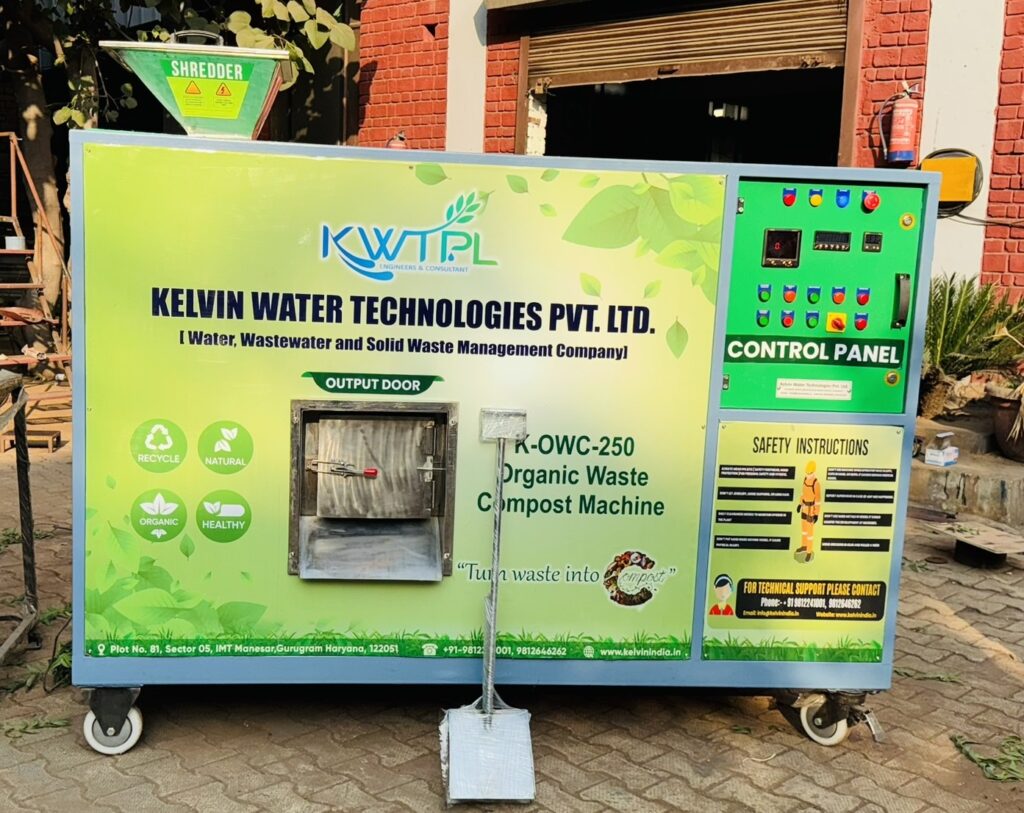What is Waste Management?
Waste management refers to the collection, transport, processing, recycling, and disposal of waste materials in a manner that reduces their impact on health, the environment, and aesthetics. It is a holistic approach that covers all forms of waste, including solid, liquid, and hazardous waste, and focuses on minimizing environmental harm while promoting resource efficiency.
Proper waste management ensures that recyclable materials are reused, hazardous substances are neutralized, and non-recyclable waste is disposed of safely, thereby reducing pollution and conserving natural resources.
Why is Waste Management Important?
The importance of effective waste management cannot be overstated. Improper handling of waste can lead to serious environmental, health, and economic problems.
- Environmental Protection
Unmanaged waste can contaminate soil, water, and air, harming ecosystems and wildlife. Efficient waste management prevents land, river, and ocean pollution.
- Public Health and Safety
Accumulated waste is a breeding ground for bacteria, viruses, and pests, causing diseases like dengue, malaria, cholera, and respiratory problems. Proper disposal protects communities from such health hazards.
- Resource Conservation
Recycling and reusing waste materials conserve natural resources, reduce the demand for raw materials, and minimize the environmental footprint.
- Compliance with Regulations
Governments enforce strict waste disposal laws. Businesses and municipalities must adhere to these regulations to avoid penalties and legal issues.
- Economic Benefits
Efficient waste management reduces landfill costs, promotes recycling industries, and creates job opportunities in waste collection, segregation, and processing.
Types of Waste
Waste is generally classified into several types, each requiring specific handling and treatment methods:
- Municipal Solid Waste (MSW)
- Generated by households, offices, and public areas.
- Includes food waste, paper, plastics, glass, metals, and textiles.
- Industrial Waste
- Produced by factories and manufacturing units.
- May include chemicals, metals, packaging materials, and by-products.
- Hazardous Waste
- Dangerous to health and the environment.
- Includes chemical wastes, medical wastes, batteries, and e-waste.
- Biomedical Waste
- Generated by hospitals, clinics, and laboratories.
- Includes contaminated bandages, syringes, pathological waste, and pharmaceuticals.
- Agricultural Waste
- Generated by farms and plantations.
- Includes crop residues, manure, pesticides, and fertilizers.
- Electronic Waste (E-Waste)
- Discarded electronic devices such as computers, mobile phones, and appliances.
- Requires specialized recycling methods to recover metals and prevent toxic leakage.
Methods of Waste Management
Waste management involves several stages, each designed to minimize environmental and health impacts.
- Waste Collection and Segregation
- Waste must be collected from homes, industries, and public places.
- Segregation at the source into biodegradable, non-biodegradable, recyclable, and hazardous waste improves efficiency in recycling and disposal.
- Transportation
- Collected waste is transported to processing or disposal sites using trucks, compactors, or specialized vehicles.
- Ensures safe handling without leakage or contamination.
- Treatment and Processing
- Composting: Converts organic waste into nutrient-rich fertilizer.
- Recycling: Processes materials like plastics, paper, glass, and metals to create new products.
- Incineration: Burns non-recyclable waste to reduce volume and generate energy.
- Chemical Treatment: Neutralizes hazardous or toxic waste.
- Disposal
- Landfills are carefully designed areas where non-recyclable waste is buried.
- Modern sanitary landfills use liners and leachate collection systems to prevent soil and groundwater contamination.
- Energy Recovery
- Some waste can be used as fuel to produce electricity or heat, reducing dependence on fossil fuels.
- Waste-to-energy plants convert municipal solid waste into renewable energy.
Best Practices in Waste Management
To ensure efficient and sustainable waste management, several practices are recommended:
- Reduce, Reuse, and Recycle (3Rs)
- Reduce: Minimize waste generation at the source.
- Reuse: Extend the life of products before disposal.
- Recycle: Process waste materials to create new products.
- Source Segregation
- Separate waste into biodegradable, recyclable, and hazardous categories to simplify treatment.
- Public Awareness and Participation
- Educating citizens about proper disposal and recycling methods enhances community involvement.
- Use of Technology
- Automation, sensors, and smart bins improve collection efficiency.
- GPS tracking and monitoring ensure timely transport and proper handling.
- Industrial Waste Management
- Industries should adopt Effluent Treatment Plants (ETPs) and Zero Liquid Discharge (ZLD) systems to manage liquid waste.
- Hazardous waste must be treated using specialized chemical or thermal processes.
Role of Companies in Waste Management
Organizations play a critical role in implementing effective waste management strategies. Leading companies, like Kelvin Water Technologies Pvt. Ltd., provide innovative waste management solutions including:
- Industrial ETPs for safe liquid waste treatment.
- Baling Press Machines to compress and recycle solid waste.
- Organic Waste Converters (OWC) for composting food and organic residues.
- Zero Waste Management systems to minimize landfill disposal and promote circular economy.
Benefits of Efficient Waste Management
- Environmental Sustainability
Minimizes pollution, protects ecosystems, and conserves natural resources.
- Economic Savings
Reduces disposal costs, promotes recycling, and generates revenue from recyclable materials.
- Health and Safety
Prevents disease outbreaks and improves community well-being.
- Legal Compliance
Ensures adherence to environmental laws and standards, avoiding penalties.
- Energy Conservation
Waste-to-energy processes and recycling reduce dependence on fossil fuels.
- Corporate Responsibility
Enhances brand image and demonstrates commitment to sustainability.
Future of Waste Management
The future of waste management lies in sustainable and technology-driven solutions:
- Smart waste collection using IoT-enabled bins.
- Automation and AI in recycling and sorting facilities.
- Circular economy models promoting reuse and resource recovery.
- Green energy generation from waste through bio-gas and incineration.
- Community-driven initiatives for awareness and participation.
Conclusion
Waste management is no longer a choice; it is a necessity for environmental sustainability, public health, and regulatory compliance. From collection and segregation to recycling, treatment, and disposal, a systematic approach is essential to minimize the harmful effects of waste.
By leveraging advanced technology, sustainable practices, and innovative solutions provided by companies like Kelvin Water Technologies Pvt. Ltd., businesses and communities can achieve efficient waste management, reduce environmental impact, and create a cleaner, healthier, and more sustainable world.



